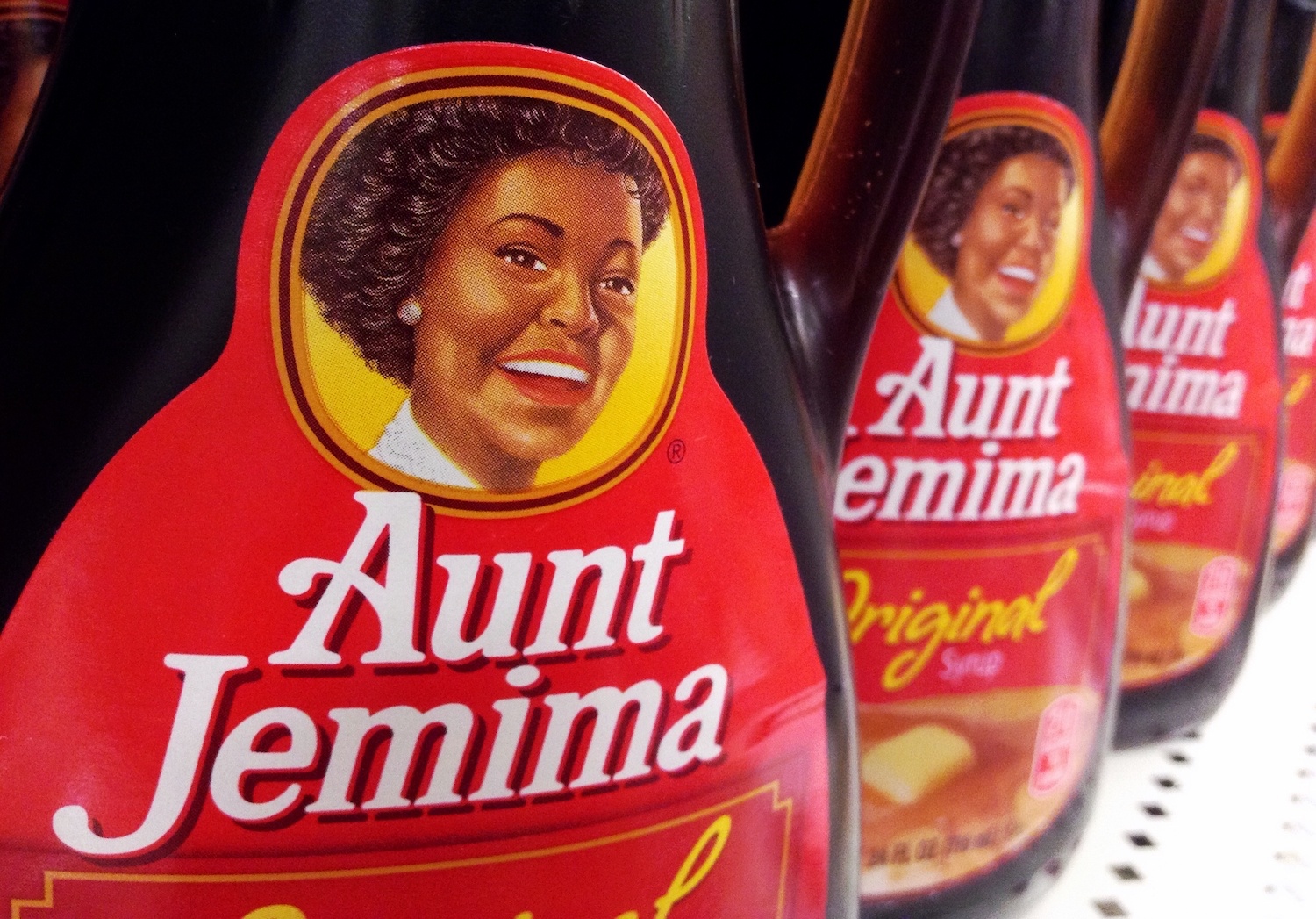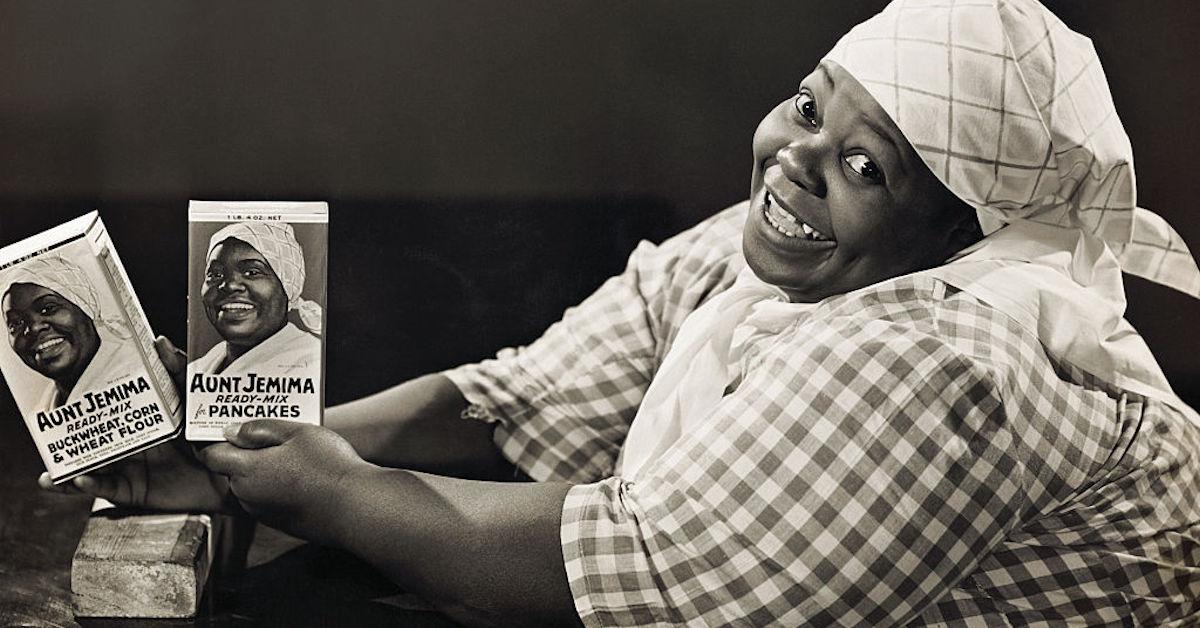Aunt Jemima's Return? Debunking The 2025 Rumor | Google Discover
Could the iconic Aunt Jemima, a name synonymous with breakfast for generations, be making a comeback? Despite official denials, a flurry of social media activity in late October 2024 sparked a wave of speculation, suggesting a potential return to syrup bottles and store shelves in 2025, leaving many to question the truth behind the online buzz.
The whispers began swirling in the digital ether in late October 2024, fueled by online posts suggesting a revival of the Aunt Jemima brand. These claims, quickly shared across various social media platforms, indicated that Quaker Oats, the parent company of the Pearl Milling Company (the current brand), was planning to reinstate the Aunt Jemima name and imagery on its products by 2025. The news, if true, would have been a significant shift, reversing the company's 2020 decision to retire the brand due to concerns about its origins and its perpetuation of racial stereotypes.
While the initial claims of Aunt Jemima's return generated excitement and debate, particularly among those who held nostalgic views of the brand, it is important to note the company's official position. As of the current time, Quaker Oats has not made any announcements about reinstating the Aunt Jemima name or its imagery. In 2020, the company rebranded the syrup and pancake mix under the Pearl Milling Company name, a decision aimed at modernizing its image and addressing the sensitivities surrounding the historical context of the brand. This shift was part of a broader effort to promote inclusivity and dismantle the legacy of a brand built on potentially harmful racial stereotypes.
The history of the Aunt Jemima brand is complex and intertwined with American history and cultural sensitivities. The brand, established in 1889 by Chris Rutt and Charles Underwood, initially featured a character inspired by minstrel shows. In 1933, Quaker Oats appointed Anna Robinson, a Black woman, to embody Aunt Jemima, changing the face of the brand. The image of Aunt Jemima evolved over the years, but the association with racial stereotypes remained a sensitive issue. In June 2020, after years of public scrutiny, Quaker Oats announced the retirement of the Aunt Jemima brand name, leading to a significant re-evaluation of the brand's place in modern society. Since then, the products have been sold under the Pearl Milling Company brand.
The recent social media rumors are the result of a post made on X claiming that the Quaker Oats Company plans to place Aunt Jemima back on its syrup bottles. Though, this claim originated as satire. Nevertheless, this rumor still gained traction among social media users. This raises important questions about the sources of information we consume and the speed at which rumors can spread online.
The potential return of the Aunt Jemima brand has captured the attention of media outlets, social media influencers, and everyday consumers. The decision to retire the brand in 2020 was met with mixed reactions. Some people, primarily those from the baby boomer generation, and the "maga mob" as mentioned by some, expressed their disappointment and nostalgia for the original Aunt Jemima brand. Others welcomed the change, recognizing the brand's problematic history and the need for more inclusive representation in the food industry. This division highlights the complex relationship between brands, consumers, and cultural sensitivities.
The story also serves as a reminder of the significant role brands can play in shaping cultural narratives and societal values. Brands are more than just products; they are often symbols of identity, history, and cultural meaning. Their images and messaging influence consumers' perceptions and can contribute to positive or negative social change. The Aunt Jemima case is a valuable reminder of the power and the responsibility that comes with building and maintaining a brand.
The debate surrounding the brand is a microcosm of a broader conversation happening across the country. This dialogue touches on topics of race, representation, and the influence of commercial interests on cultural identity. The conversation surrounding the Aunt Jemima brand can be understood as an ongoing reflection of America's reckoning with its own complex past. The conversation also reveals the need for critical thinking and the verification of information.
The Aunt Jemima brand played a significant role in changing trademark law. By 1914, Aunt Jemima was one of the most recognized brands in the country, and other companies started using the likeness to sell their own breakfast products. To increase sales, Aunt Jemima introduced a companion for their icon, a male named Uncle Rastus, later changed to Uncle Mose. The case highlights the ongoing evolution of brand images and the role of companies in navigating evolving social norms.
The future of the Aunt Jemima brand remains uncertain. While official company statements deny any plans for a return, the constant flow of online speculation and the enduring power of nostalgia suggest the conversation is far from over. The case of Aunt Jemima underscores the need for vigilance in the face of online rumors, as well as the importance of informed decision-making when consuming information. It highlights the impact that a brand can have on the collective imagination, the memories it evokes, and the complex interplay between cultural history, consumer desires, and commercial strategies in the 21st century.
| Brand Element | Description | Historical Context | Current Status |
|---|---|---|---|
| Aunt Jemima Name & Image | The iconic branding featuring a woman with a headscarf, representing a "mammy" figure. | Created in 1889, inspired by minstrel show characters. The image was adapted over time. | Retired by Quaker Oats in 2020 due to concerns about racial stereotypes. The Pearl Milling Company brand replaced Aunt Jemima. |
| Pearl Milling Company | The name given to the rebranded syrup and pancake mix products. | The name was chosen to remove the brands association with the Aunt Jemima image. | Current brand name for the products formerly sold under the Aunt Jemima label. |
| Uncle Rastus/Mose | A male figure introduced to complement Aunt Jemima. | Initially introduced as "Uncle Rastus", and later changed to "Uncle Mose." | The image of the Uncle Rastus/Mose character has been removed from the current products. |
| Rumors of Reinstatement | Claims that Quaker Oats would bring back the Aunt Jemima brand in 2025. | Circulated on social media platforms in late October 2024. | Quaker Oats has denied these claims. |
Source: PepsiCo


